I newbie in Laravel API. There is an update function which only allows users to update their own post. It worked. When users try to update other user's post, it alswo worked, but it shows the error like this image. Actually i want it show in response json.

I want to show message like this
{
"status": "error",
"message": "This action is unauthorized",
}
This is my code for PostController.
public function update(Request $request, Post $post)
{
$this->authorize('update', $post);
//this will check the authorization of user but how to make if else statement, if the post belong to the user it will show this json below but if the post belong to other, it will show error message(response json)
$post->content = $request->get('content', $post->content);
$post->save();
return fractal()
->item($post)
->transformWith(new PostTransformer)
->toArray();
}
This code for PostPolicy
public function update(User $user, Post $post)
{
return $user->ownsPost($post);
}
This is code for User model
public function ownsPost(Post $post)
{
return Auth::user()->id === $post->user->id;
}
This code for AuthServiceProvider
protected $policies = [
'App\Post' => 'App\Policies\PostPolicy',
];
Hope anyone can help me.